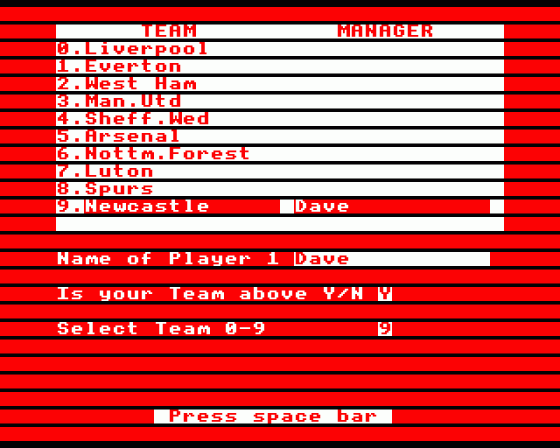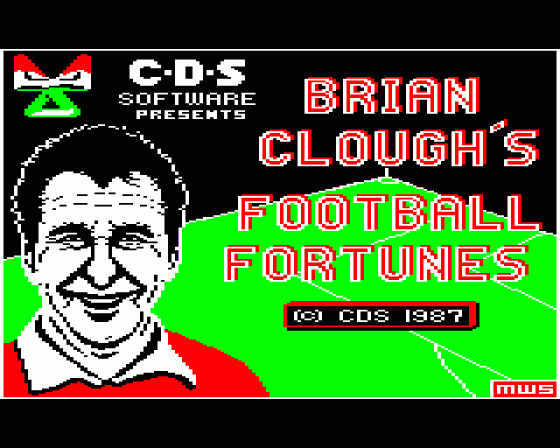
The Micro User
 1st July 1987
1st July 1987
Author: Niels Reynolds
Publisher: CDS
Machine: BBC/Electron
Published in The Micro User 5.05
One of the best things about Football Fortunes is that you don't even have to like or understand football to enjoy it. It helps of course, but if you enjoy Monopoly, then you should get a kick out of this one.
It is in no way an arcade type of simulation, but a computer interactive board game on the theme of soccer management, aiming for success on the field and in the bank.
The pack includes the program disc, a well designed if rather flimsy board, player cards, bank notes, counters and clearly laid out instructions.

Football Fortunes is for two to five players, although one person can play quite acceptably, controlling two teams.
Each player types in his name and chooses a team to manage. There is a choice of 10 first division sides, but any other team can be nominated, even an amateur or school side.
The computer then allocates 11 player cards and two substitutes to each team, each having a nominal value of between one and five points.

The team is divided into attack and defence, both sections having a strength determined by their total player values. These values will directly affect the results of matches.
Players "throw" the computer die and move accordingly. There are possibilities for player auctions, increasing attack and defence ratings, selection problems, sponsorship, manager's luck - good and bad - loans, transfers, injuries, wage demands and so on.
The team strengths are reassessed and entered into the computer, which determines the match results. These then come through on theteleprinter, the gate money is allocated and the league table formulated.
Matches are generally decided by team strength, but there can be upsets. As managers often say on the box: "There's nothing certain in football".
There are nine matches to the season and tension is certainly generated as it progresses. There is also the FA Cup to play for and, in subsequent seasons. European competitions.
Points are allocated according to your team's position in the league, its progress through the cup competitions and money held. The winner naturally enough is the player with the most game points at the end of an agreed number of seasons.
CDS has come up with a great game and presented it really well, it couldn't work as well purely as a board game, and it would lose something for being a micro-only game.
The balance achieved is just right, making for a great family game - and no crowd trouble.



